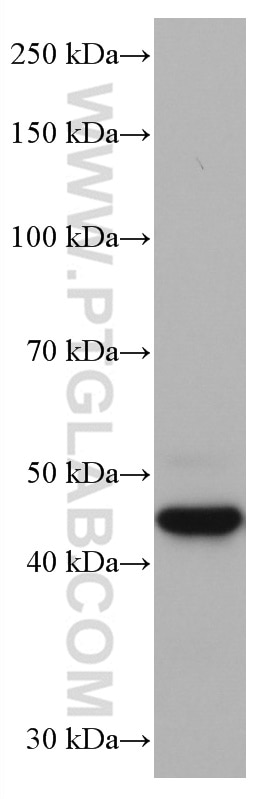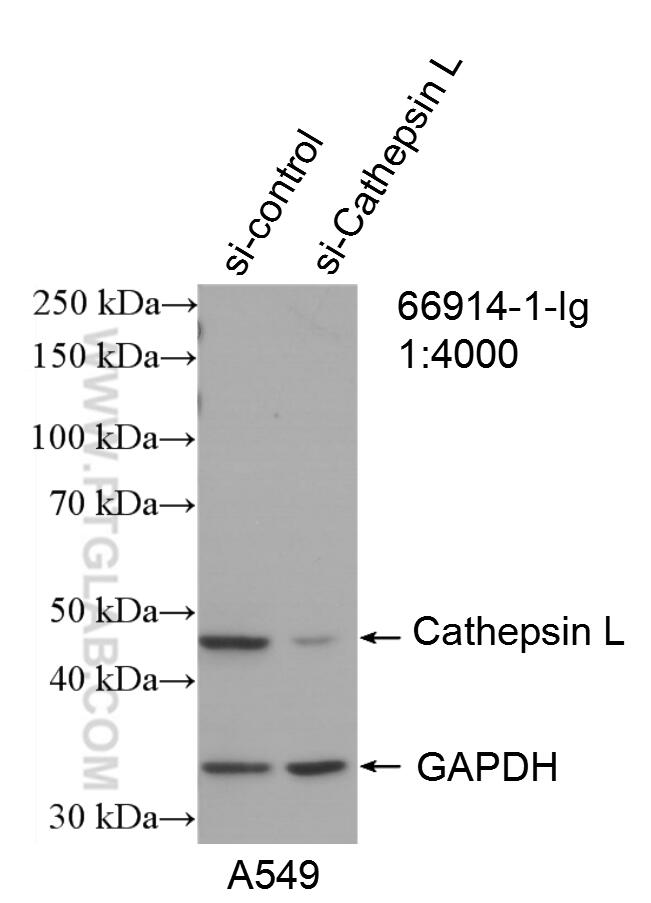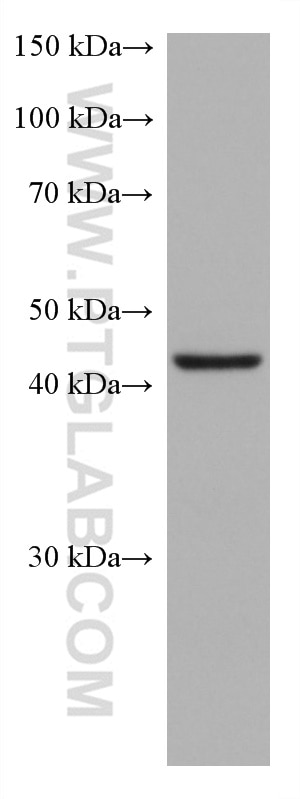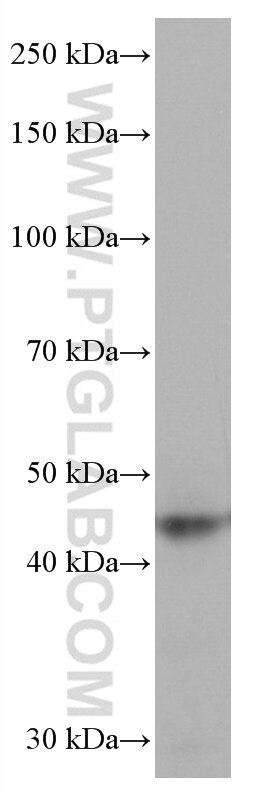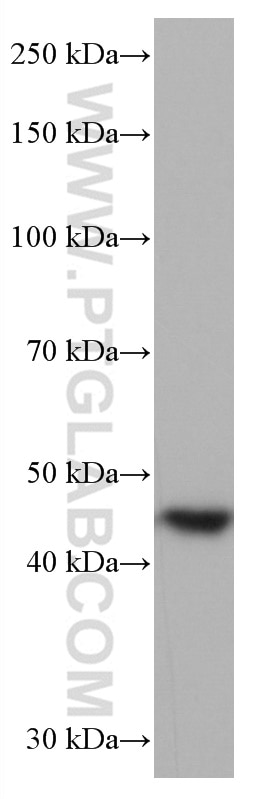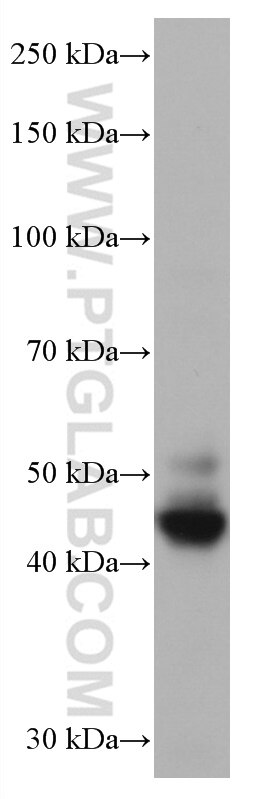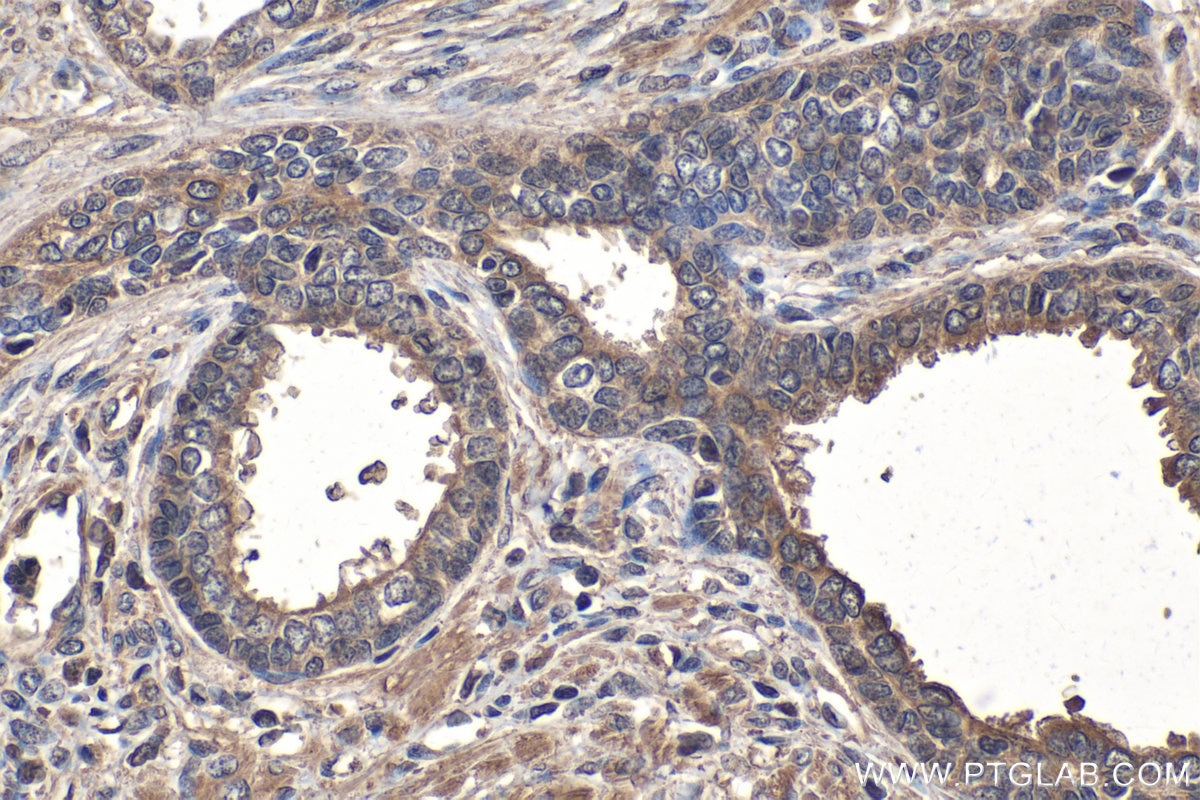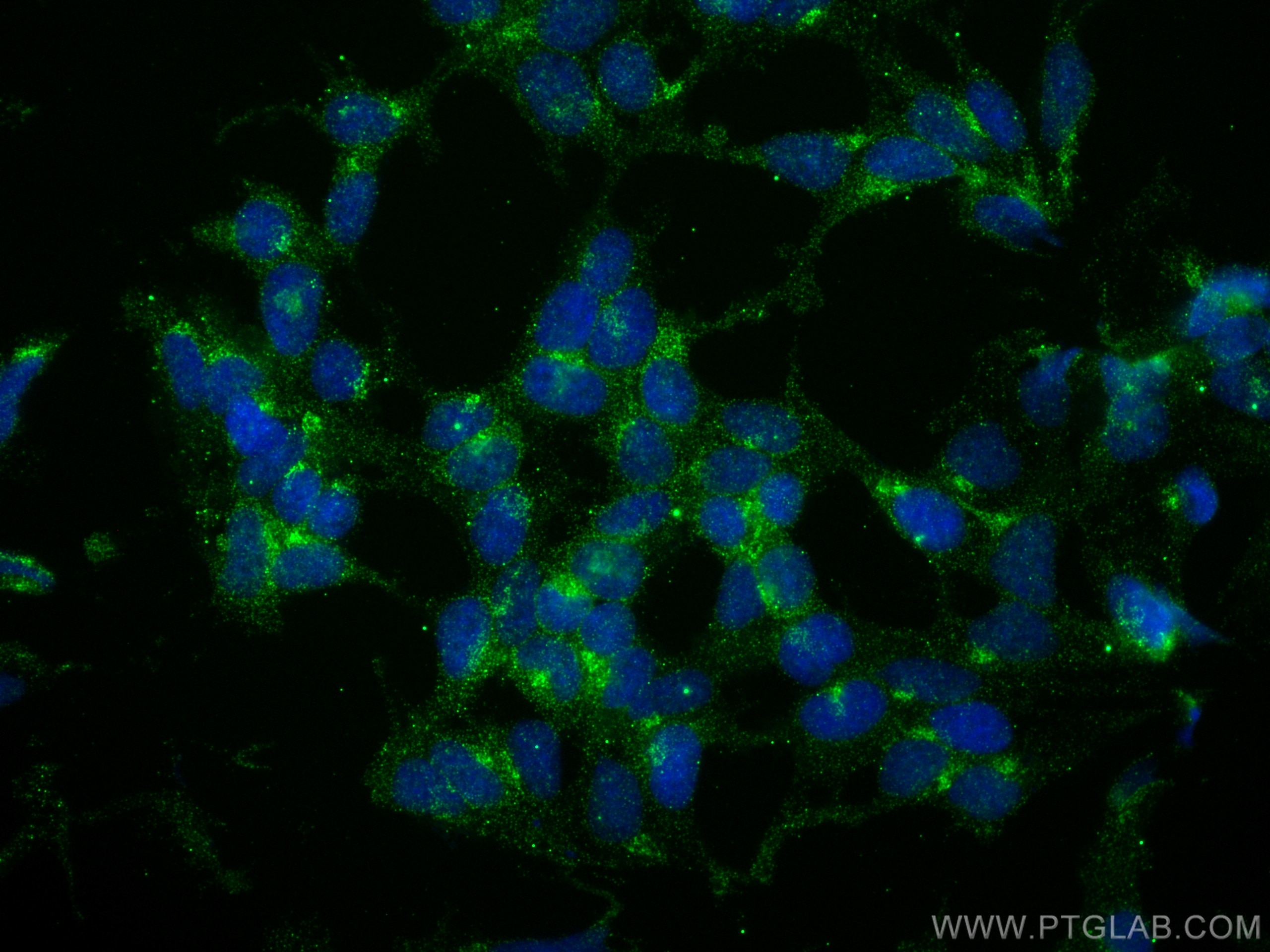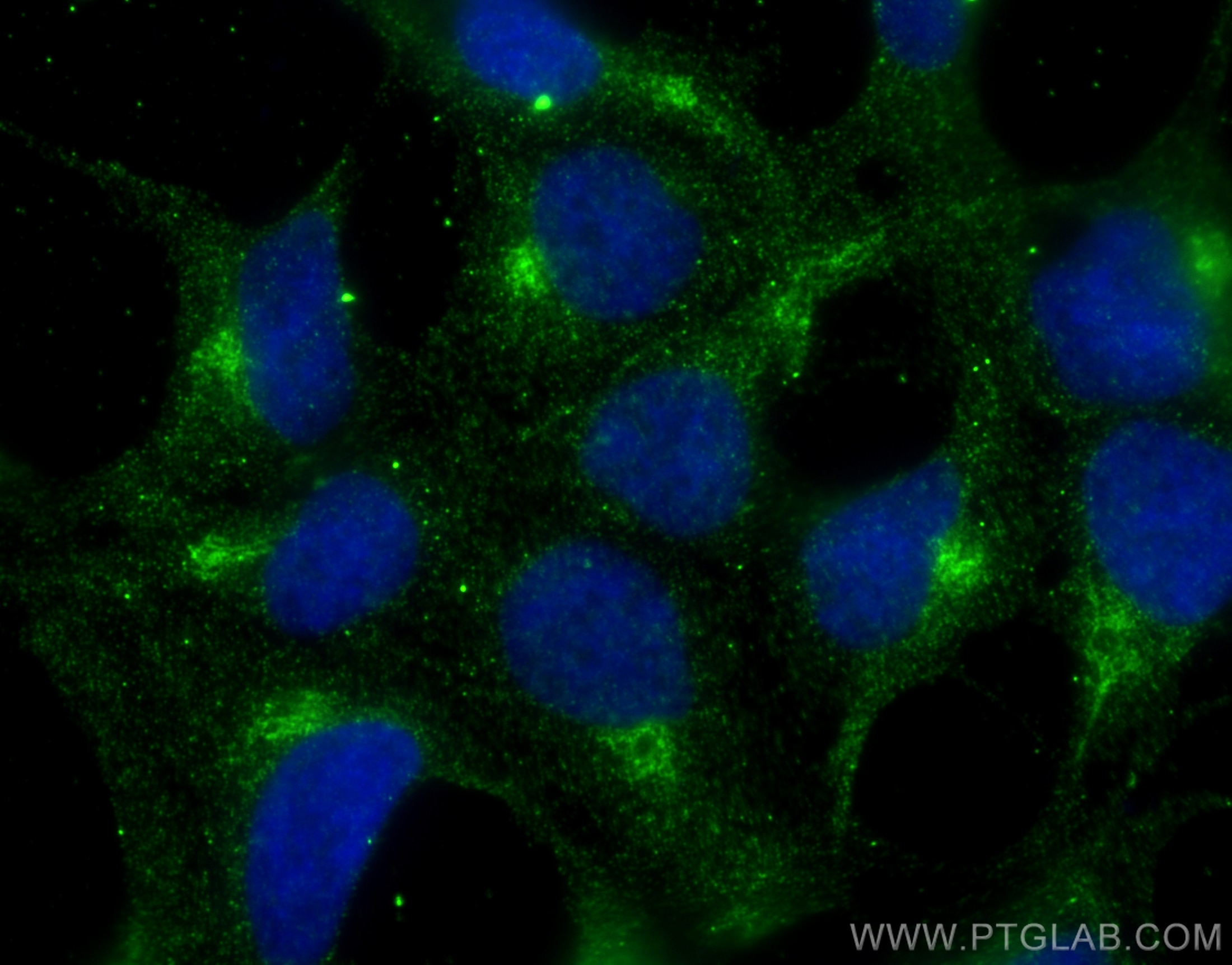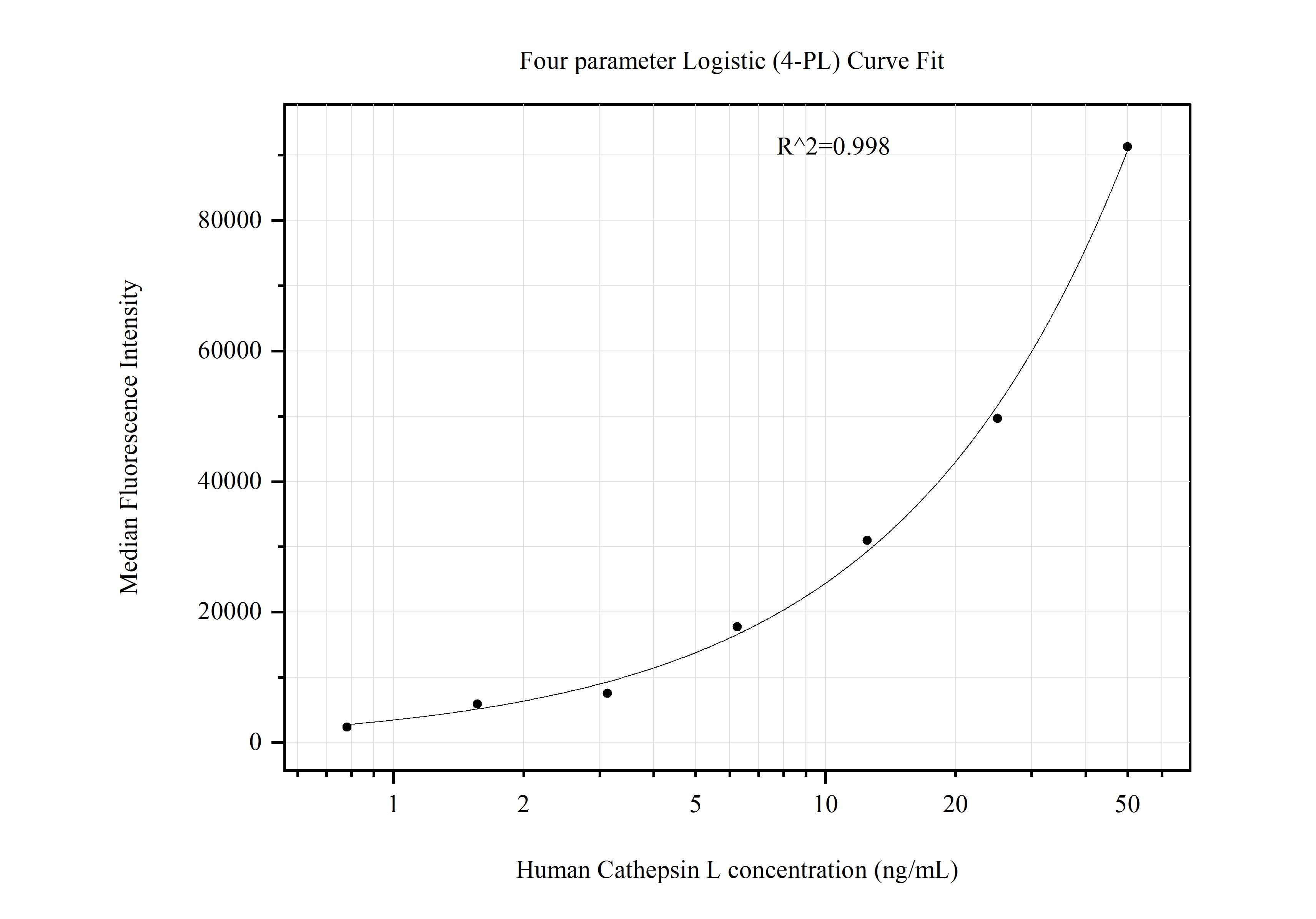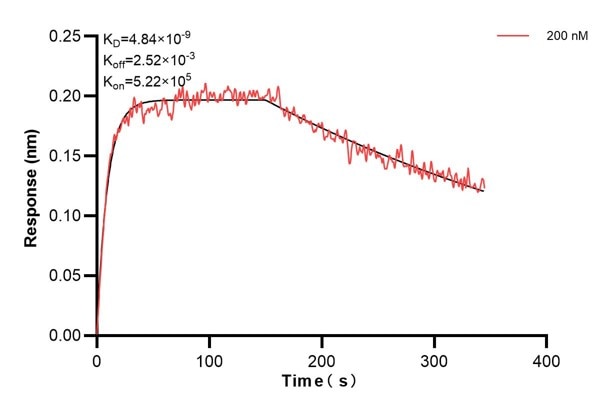Validation Data Gallery
Tested Applications
Recommended dilution
| Application | Dilution |
|---|---|
| It is recommended that this reagent should be titrated in each testing system to obtain optimal results. | |
Product Information
66914-1-PBS targets Cathepsin L as part of a matched antibody pair:
MP51216-1: 66914-2-PBS capture and 66914-1-PBS detection (validated in Cytometric bead array)
Unconjugated mouse monoclonal antibody pair in PBS only (BSA and azide free) storage buffer at a concentration of 1 mg/mL, ready for conjugation.
This conjugation ready format makes antibodies ideal for use in many applications including: ELISAs, multiplex assays requiring matched pairs, mass cytometry, and multiplex imaging applications.Antibody use should be optimized by the end user for each application and assay.
| Tested Reactivity | human |
| Host / Isotype | Mouse / IgG2b |
| Class | Monoclonal |
| Type | Antibody |
| Immunogen | Cathepsin L fusion protein Ag27951 相同性解析による交差性が予測される生物種 |
| Full Name | cathepsin L1 |
| Calculated molecular weight | 38 kDa |
| Observed molecular weight | 43 kDa |
| GenBank accession number | BC012612 |
| Gene Symbol | Cathepsin L |
| Gene ID (NCBI) | 1514 |
| RRID | AB_2882241 |
| Conjugate | Unconjugated |
| Form | Liquid |
| Purification Method | Protein A purification |
| UNIPROT ID | P07711 |
| Storage Buffer | PBS only{{ptg:BufferTemp}}7.3 |
| Storage Conditions | Store at -80°C. |
Background Information
CTSL1(Cathepsin L1) is also named as CTSL and MEP, belongs to the peptidase C1 family. It is a lysosomal proteinase whose expression is also up-regulated in the skeletal muscle during starvation(PMID:20088826). It plays an intracellular role in normal intestinal epithelial polarization and initiation of neoplasia(PMID:17622569). CTSL1 also improves cardiac function and inhibits cardiac hypertrophy, inflammation, and fibrosis through blocking AKT/GSK3B signaling(PMID:19096818). The full length protein is 38 kDa with a signal peptide, two propeptide and a glycosylation site. It has been detected the 36 kDa, 39 kDa, 29 kDa and 21 kDa in rat gastrocnemius muscle. These forms of cathepsin L could either be attributed to differences in glycosylation or to partial processing of the proenzyme. (PMID:11696001)
